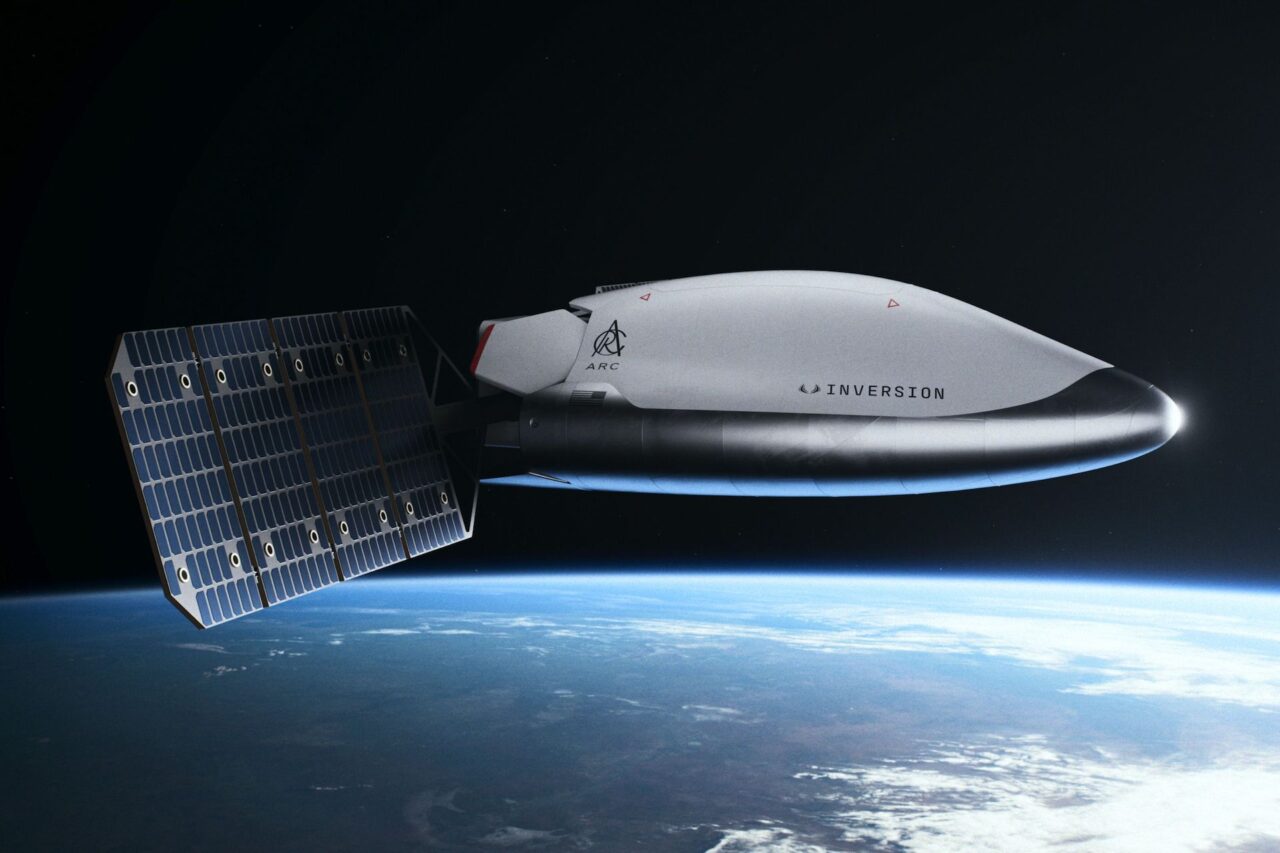Science
Inversion Space Aims to Revolutionize Cargo Delivery from Orbit

Inversion Space, a burgeoning startup founded in 2021, is set to transform global logistics with its innovative space-based delivery system. The California-based company is developing a reusable spacecraft, known as the Arc, which will be capable of delivering cargo from low Earth orbit to any location on Earth within one hour. This ambitious project aims to establish a constellation of on-demand vehicles stationed in orbit by 2028.
Unveiling the Arc
This week, Inversion Space introduced its flagship vehicle, the Arc, a hybrid spaceplane and cargo capsule measuring approximately 4 feet wide and 8 feet tall. Designed to transport up to 500 pounds (225 kilograms) of supplies, the Arc is slated for its first launch by the end of 2026. The development builds on insights gained from an earlier demonstration flight of a prototype vehicle, which took place earlier this year.
The primary objective of the Arc is not merely to access space but to facilitate rapid cargo delivery across the globe. Once launched into low Earth orbit, the vehicle can hold cargo for up to five years. When required, the Arc is engineered to reenter the atmosphere and land safely on Earth using parachutes. With a deorbit engine and an autonomous parachute system, the spacecraft can navigate its descent effectively.
Strategic Focus on Military Applications
Inversion Space’s strategy includes targeting military payloads. The company believes that the U.S. military could particularly benefit from the Arc’s ability to quickly return to Earth, which enhances defense readiness. In a statement on X, Inversion noted, “Arc reshapes defense readiness by enabling access to anywhere on Earth in under an hour – allowing for the rapid delivery of mission-critical cargo and effects to austere, infrastructure-limited, or denied environments.” This approach positions space as a new frontier in logistics, emphasizing speed, reach, and resilience.
Inversion Space successfully launched its first vehicle, named Ray, in January 2023 as part of SpaceX’s Transporter-12 rideshare mission. The Ray spacecraft served as a testing platform for the company’s technologies, including in-orbit systems and reentry capabilities. While the mission was largely successful, Ray encountered a propulsion issue that prevented it from reentering the atmosphere as planned. Inversion stated, “Our first spacecraft, Ray, has completed its mission on-orbit – serving as an extremely successful testbed for validating key technologies despite not attempting re-entry due to an on-orbit short circuit in a component preventing our deorbit engine from igniting.”
The company emphasized that nearly all systems on board Ray were developed in-house by a dedicated team of just 25 individuals. Although Inversion Space is new to the aerospace sector, it has ambitious plans to manufacture hundreds of vehicles annually and establish a reliable constellation of cargo reentry spacecraft by 2028.
As the demand for rapid delivery solutions grows, Inversion Space’s innovative approach could redefine logistical operations not only for military needs but also for commercial applications in the future. This pioneering effort highlights the potential of space technology to address pressing global challenges, setting the stage for a new era in cargo transportation.
-

 Technology5 months ago
Technology5 months agoDiscover the Top 10 Calorie Counting Apps of 2025
-

 Health3 months ago
Health3 months agoBella Hadid Shares Health Update After Treatment for Lyme Disease
-

 Health3 months ago
Health3 months agoErin Bates Shares Recovery Update Following Sepsis Complications
-

 Technology4 months ago
Technology4 months agoDiscover How to Reverse Image Search Using ChatGPT Effortlessly
-

 Technology1 month ago
Technology1 month agoDiscover 2025’s Top GPUs for Exceptional 4K Gaming Performance
-

 Technology3 months ago
Technology3 months agoElectric Moto Influencer Surronster Arrested in Tijuana
-

 Technology5 months ago
Technology5 months agoMeta Initiates $60B AI Data Center Expansion, Starting in Ohio
-

 Technology5 months ago
Technology5 months agoRecovering a Suspended TikTok Account: A Step-by-Step Guide
-

 Health5 months ago
Health5 months agoTested: Rab Firewall Mountain Jacket Survives Harsh Conditions
-

 Lifestyle5 months ago
Lifestyle5 months agoBelton Family Reunites After Daughter Survives Hill Country Floods
-

 Health3 months ago
Health3 months agoAnalysts Project Stronger Growth for Apple’s iPhone 17 Lineup
-

 Technology4 months ago
Technology4 months agoHarmonic Launches AI Chatbot App to Transform Mathematical Reasoning





















